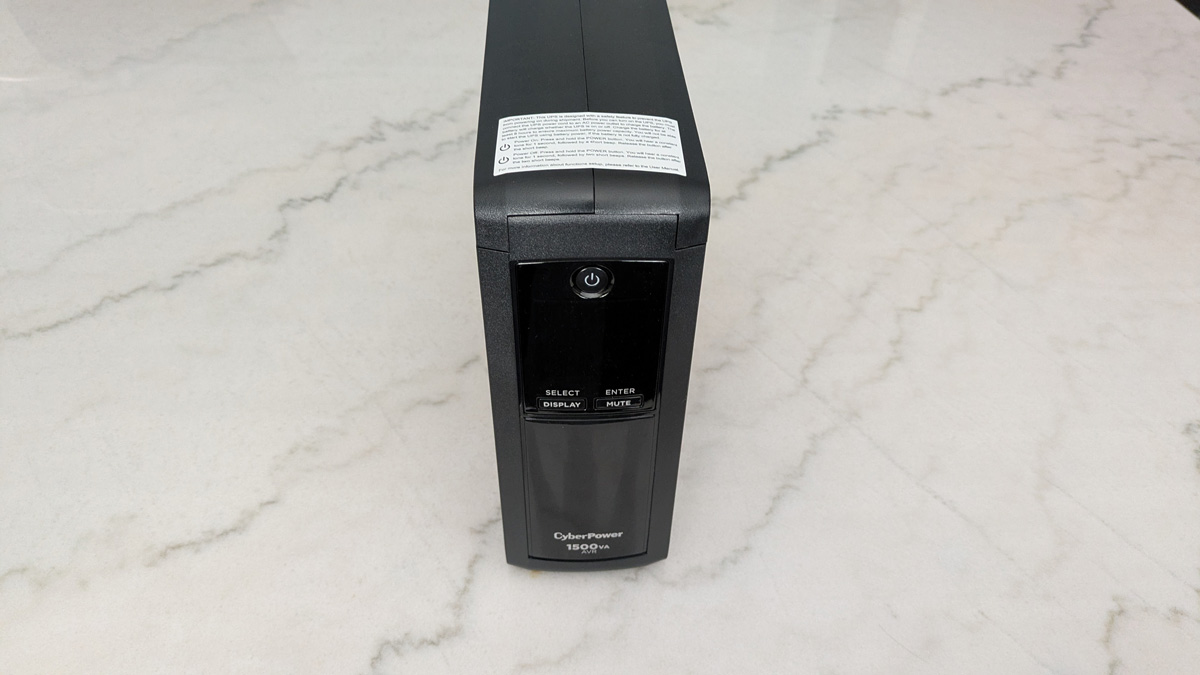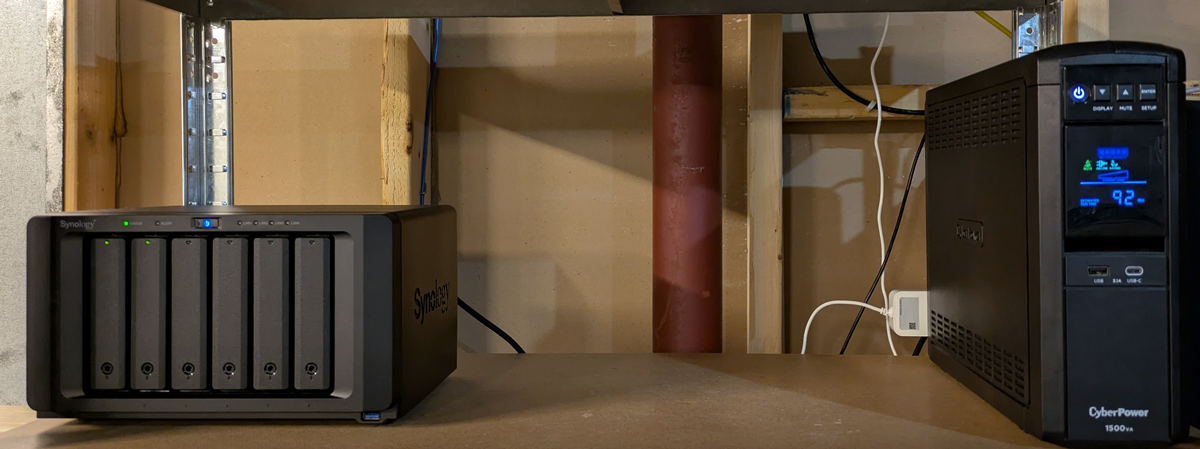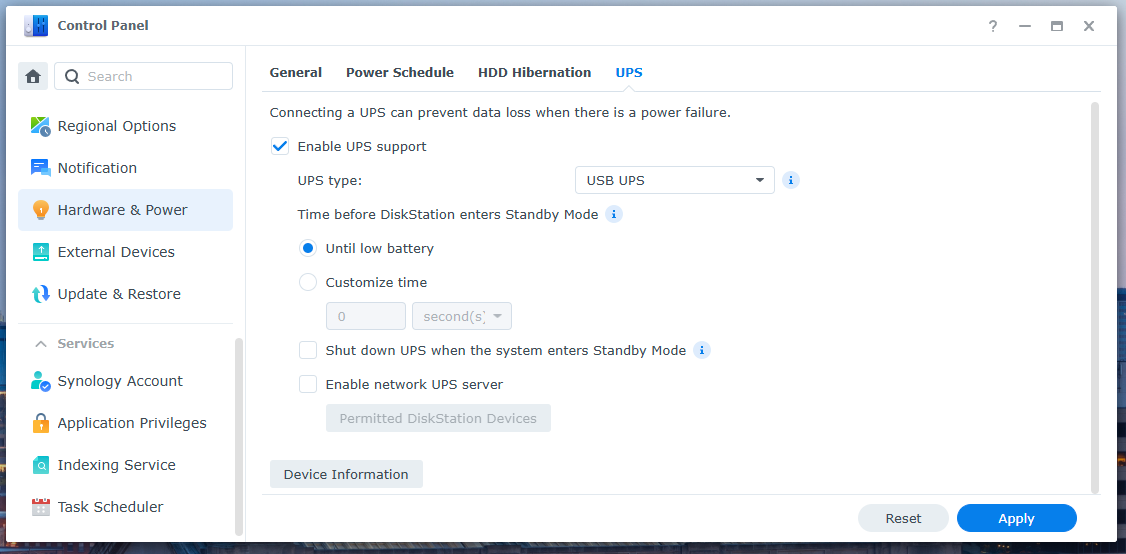Best Battery Backup (UPS) for Your NAS Server
Your NAS (Network Attached Storage) server is one of the most critical pieces of technology in your home office or small business. Whether you use it for file sharing, data backups, hosting media, or running applications, your NAS acts as the central hub for your digital assets. But like any technology, it’s only as reliable as the power keeping it online.
A sudden outage or power fluctuation doesn’t just shut down your NAS — it can cause corrupted data, lengthy RAID rebuilds, and unexpected downtime for your team or clients. Fortunately, a battery backup, also known as an Uninterruptible Power Supply (UPS), can protect your NAS from these risks while giving you peace of mind.

In this article, we’ll cover the key reasons why a UPS is essential for your NAS, highlight the benefits for both personal and business use, and recommend the best battery backup models that we trust and use at Igniting Business.
TL;DR: Why Use a UPS for Your NAS
A UPS (Uninterruptible Power Supply) protects your NAS from sudden power loss, ensuring graceful shutdowns and preserving data integrity. Having a battery backup in place has numerous benefits:
- Prevents RAID corruption and drive damage from abrupt shutdowns or brown outs.
- Keeps files accessible to local users and remote workers even during power interruptions.
- Works best when paired with a UPS for your network including router and modem — keeping both NAS and internet online.
You can jump to the end to see our specific recommendations for the best battery backups for NAS.
Why a Battery Backup Is Essential for Your NAS Server
Your NAS (Network-Attached Storage) is the digital backbone of your home office or small business. Whether you’re using a Synology, QNAP, Asustor, or TerraMaster system, power interruptions can cause more than just inconvenience — they can lead to costly data loss, RAID rebuilds, or downtime that frustrates your team. A dedicated UPS protects your investment and safeguards your devices for continuous access.

Graceful Shutdowns Protect Data
Without backup power, an unexpected outage can leave your NAS vulnerable to corrupted files and incomplete writes to primary drives or caching drives. A UPS provides enough runtime for your NAS to shut down gracefully, saving work in progress and avoiding filesystem errors.
Using a compatible UPS and NAS, you can automate this process.
💡 Pro Tip: Most modern NAS systems (especially Synology NAS devices) can connect directly to a UPS via a USB cable. Once configured within your NAS software, this integration allows automatic shutdown and drive dismount sequences without manual intervention.
 Settings shown for a Synology NAS connected to a CyberPower UPS.
Settings shown for a Synology NAS connected to a CyberPower UPS.
RAID Protection and Drive Safety
If your NAS uses RAID, sudden power loss can wreak havoc. A UPS helps maintain array stability and prevents extended rebuild times caused by abrupt shutdowns. It also reduces wear and tear on hard drives by preventing sudden power-offs that can stress spinning disks.
Maintain Uptime and Accessibility
During short power blips or brownouts, a UPS ensures your NAS remains available — keeping data accessible for employees, clients, or remote workers who depend on uninterrupted access to shared files.
💡 Pro Tip: Pairing a NAS UPS with a dedicated UPS for your router and modem ensures not only that your files stay safe, but that your remote workforce can continue accessing them online. We have a guide on battery backups for modem and routers.
Data Availability During Network Interruptions
Your NAS doesn’t exist in a vacuum. If your NAS has power but your networking equipment doesn’t, your team still can’t connect. By protecting both systems in tandem, you create a resilient infrastructure that minimizes downtime and keeps operations smooth.
Additionally, it may be wise to identify key employees that could use a UPS on their own devices. For instance, every employee at Igniting Business has a UPS on their desktop that can keep them operating 30-60 minutes during a power outage.
This, in combination with our NAS running on battery backup, means we can keep operating (including completing billable work!), even with minor power outages.
Recommended CyberPower UPS Models for NAS Servers
At Igniting Business, we’ve tested multiple UPS brands and consistently recommend CyberPower for reliability, features, and value. We’ve used CyberPower UPS since our company started in 2012, and I personally used them in my prior role before starting Igniting Business.
The following are the battery backup models we most commonly use and recommend for NAS applications.
CyberPower CP1500PFCLCD – Tower/Desktop NAS
Perfect for desktop or tower-style NAS units (like the Synology DS1525+ or the smaller DS425+), this PFC Sinewave UPS offers 1,500VA and 1,000W capacity, pure sine wave output, and USB integration for automatic shutdown.
- This is the exact UPS we use at Igniting Business for our Synology NAS.
- The CyberPower CP1500PFCLCD features PowerPanel software for monitoring, logging, and graceful shutdowns. The UPS itself has a direct integration with Synology NAS Devices.
- This UPS uses a compact, vertical form factor with LCD display for easy status checks.
CyberPower CP2000PFCRM2U – Rackmount NAS
For rack-mounted systems, this 2U rackmount UPS provides the same pure sine wave reliability as the CP1500PFCLCD but in a space-saving format. Ideal for businesses with network racks housing NAS, switches, and servers.
Note the CP2000PFCRM2U rackmount UPS for NAS includes a 2,000 VA and 1200W capacity. However, CyberPower has quite a few options in their rackmount lineup.
CyberPower Smart App Sinewave Series – Very High Capacity
For advanced environments needing extended runtimes, the Smart App Sinewave series models scale up to a ridiculously impressive 10,000V A and 10,000 W output. Please keep in mind these higher capacity units also have a high price tag. So, certainly balance out what makes most sense for your tech needs and budget.
- Designed for demanding deployments, these units can support multiple NAS arrays, VMs, or high-availability setups.
- Support expandable battery modules, allowing you to add capacity for longer runtime during extended outages.
💡 Pro Tip: If you plan to keep networking gear online as well, consider placing your networking equipment on a separate UPS from the NAS. This way, your NAS runtime isn’t shortened by shared loads. (See our router and modem UPS guide for recommendations.)
Bottom Line About Battery Backups for NAS Devices
Whether you’re a small business owner, an IT manager, or a NAS hobbyist, investing in the right UPS ensures your NAS remains reliable, secure, and continuously available. By protecting your storage system with a CyberPower UPS, you safeguard not only your data but also the productivity and trust of everyone who depends on it.
After nearly two decades of using UPS devices, I cannot express how thankful I am for the time saved and headaches spared by having proper battery backups integrated into our NAS and networking setup. My hope is that you invest in adding a UPS for your NAS before you actually need it.
If you’d like to receive more tips like these, feel free to subscribe to our monthly newsletter.
At no additional cost to you, we may receive a commission if you click on some of the links on this website and make a purchase.
About the author
Ben Seidel is the CEO and Founder of Igniting Business. Ben has been serving hundreds of small businesses with web design and SEO services for over 15 years and covering digital marketing related topics since 2012.
Over the years, Ben has been recognized on a local and national level, including entrepreneurship awards from both the NFIB and NASE and being featured in publications such as CNBC Universal, Yahoo News, Intuit Small Business, CIO.com, Mizzou Magazine, and Fox Business.